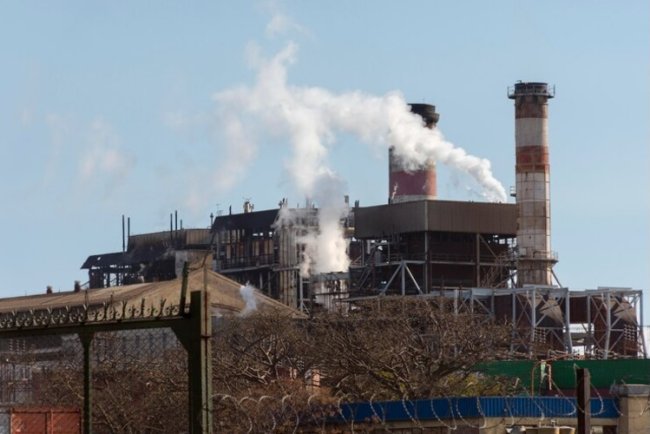Virgin Secures SBTi Nod For Net-Zero By 2050
Virgin gets SBTi validation for its 2050 net-zero plan, aiming 90% emissions cut and science-based climate action.

Virgin Holdings Limited has officially received validation from the Science Based Targets initiative (SBTi) for its long-term net-zero emissions strategy, affirming that the company’s climate roadmap aligns with the goals of the Paris Agreement and the critical 1.5°C global warming threshold. This endorsement by the SBTi confirms that Virgin’s emissions reduction targets are based on the latest climate science and reflect the urgent global need to halve emissions by 2030 and reach net-zero by mid-century.
The validation is a significant achievement for Virgin and highlights the company’s commitment to what it calls “Changing Business for Good.” According to Virgin, the SBTi’s endorsement is more than a rubber stamp—it is a recognition that the Group’s ambitious climate targets are credible, measurable, and grounded in scientific reality.
“This validation confirms that Virgin’s climate targets are aligned with what the science demands: rapid, deep cuts to emissions that help limit global temperature rise,” a company spokesperson said, emphasizing the sense of urgency that underpins its strategy.
Virgin’s climate targets are designed to decarbonize its entire value chain. The company has committed to achieving net-zero greenhouse gas (GHG) emissions across its operations and value chain by 2050. This includes an absolute reduction of scope 1 and 2 emissions by 50% by 2030 from a 2023 baseline. In a further demonstration of long-term ambition, Virgin has also pledged to reduce its absolute scope 1, 2, and 3 emissions—those linked to direct operations, purchased energy, and upstream and downstream activities—by 90% by 2050.
Recognizing the complexity of its global business structure, Virgin is also taking steps to ensure that its broader network of licensees aligns with this scientific trajectory. The company has announced that by 2029, 68% of its licensees, based on emissions contribution, will be required to set their own science-based targets. This move extends the climate commitment beyond direct control to the wider value chain, acknowledging the shared responsibility of tackling climate change across business ecosystems.
In response to the SBTi validation, Virgin Group underscored the importance of collective action and innovation in the path forward. “Everyone at Virgin is proud of this step, but we’re not done yet… we must accelerate progress across innovation and through collaboration,” the company stated, signaling its intention to go beyond target setting into practical, results-driven implementation.
The SBTi, a partnership between CDP, the United Nations Global Compact, the World Resources Institute (WRI), and the World Wide Fund for Nature (WWF), provides companies with a clearly defined pathway to reduce greenhouse gas emissions in line with the goals of the Paris Agreement. Validation by the SBTi is widely regarded as a gold standard for corporate climate action and is based on a rigorous technical review of emissions data, reduction plans, and alignment with scientifically determined climate models.
For Virgin, the validation places the company among a growing list of major corporations worldwide that are demonstrating climate ambition not through broad pledges, but through science-based, independently verified strategies. It also reinforces Virgin’s role as a climate leader within its industries, which span aviation, telecommunications, health, space, and more.
The validation also arrives at a time of increasing scrutiny on corporate climate claims, with stakeholders demanding greater transparency and accountability. Virgin has responded by committing to transparency in its emissions reporting and in the tracking of progress toward its targets. As part of this, the company plans to publicly share updates and engage stakeholders across its operations and partnerships.
Highlighting the gravity of the climate crisis, Virgin emphasized that the window to act is rapidly closing. “The science couldn’t be clearer – the world is dangerously close to breaching the 1.5°C temperature rise threshold… Halving global emissions by 2030 and hitting net-zero by 2050 isn’t just an ambition, it’s a deadline backed by science,” the Group stated.
To support its net-zero transition, Virgin will focus on a combination of strategies, including technological innovation, renewable energy integration, efficiency improvements, and collaborative efforts across its business portfolio. The company also acknowledged that addressing scope 3 emissions—often the most challenging—will require significant partnerships and engagement with suppliers, customers, and stakeholders across the value chain.
Virgin’s commitment to decarbonization, backed by science and verified by the SBTi, sets a clear course for its future operations and adds momentum to the global push for meaningful climate action. As the world navigates a critical decade for climate, the validation of Virgin’s targets underscores the importance of urgency, integrity, and innovation in driving the corporate response to the climate emergency.
What's Your Reaction?

















